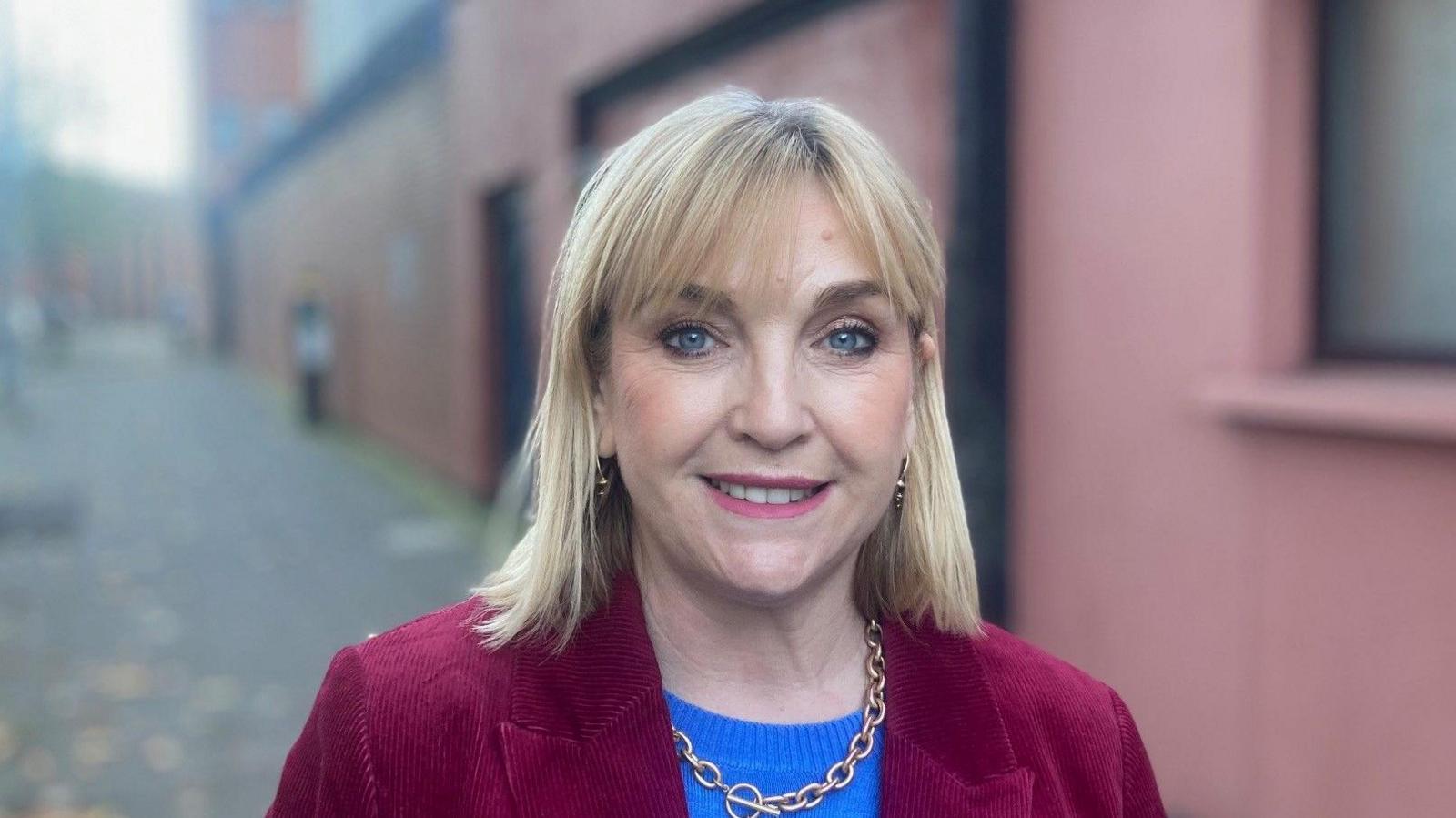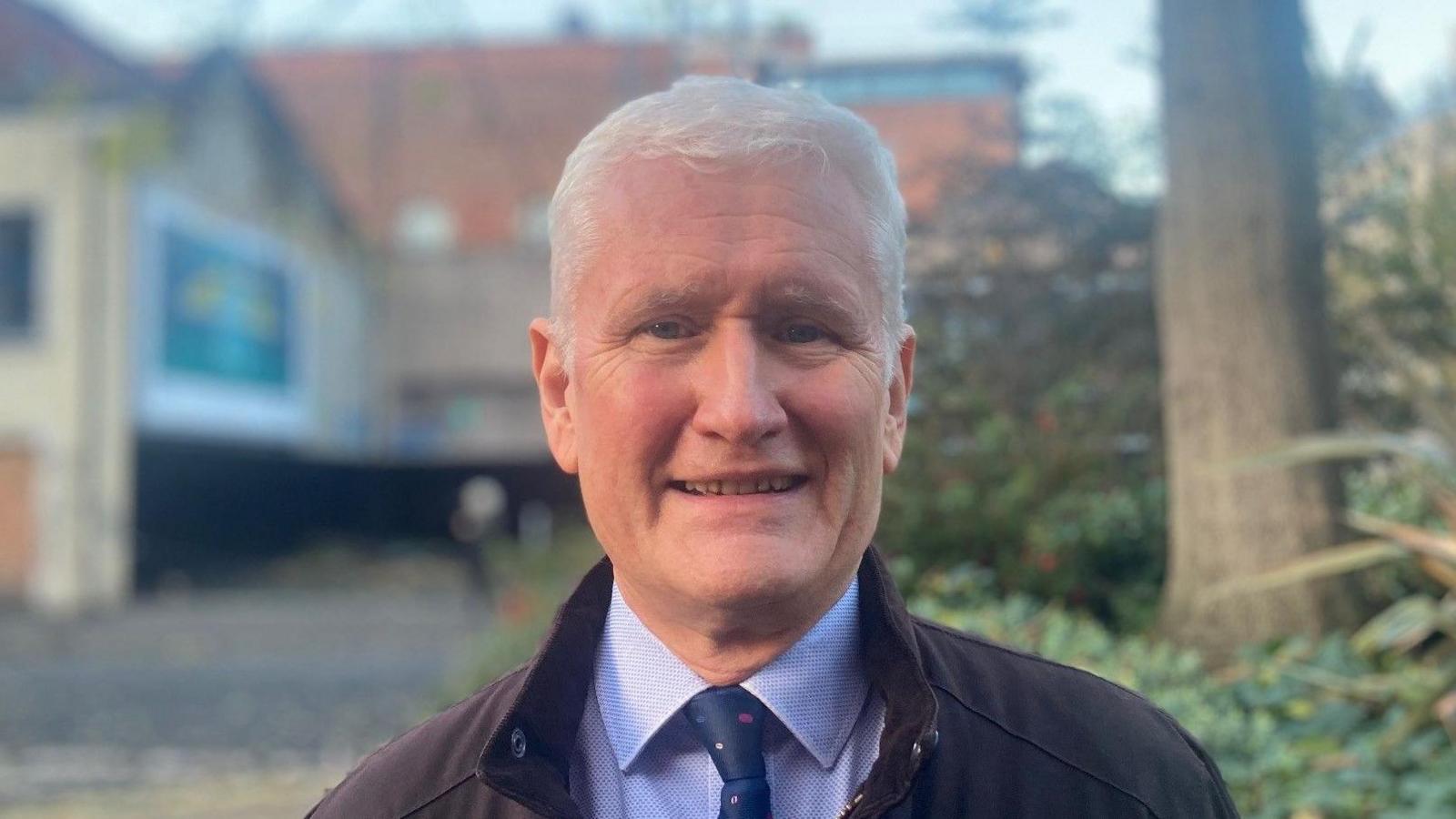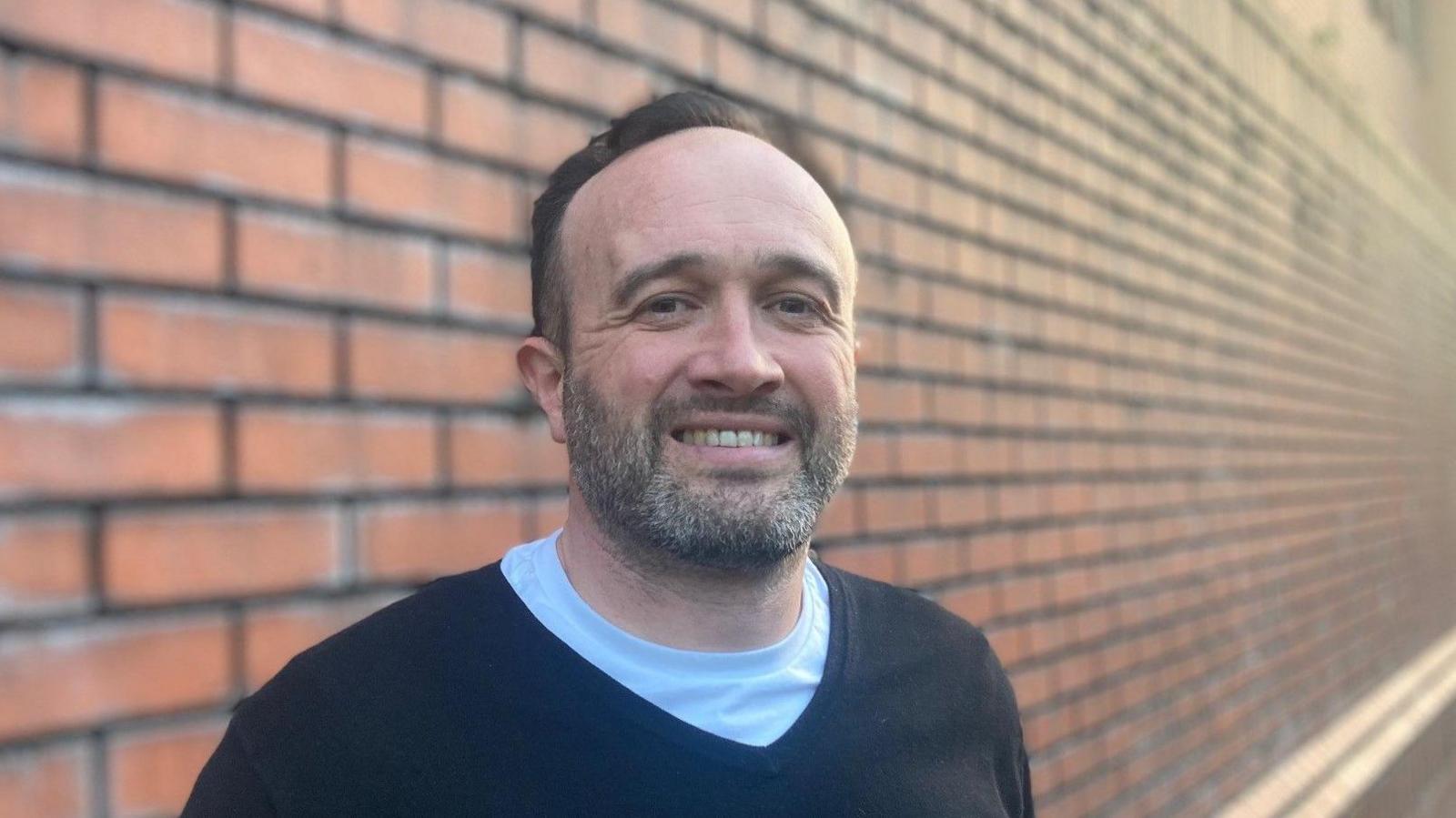'Voluntary sector is in a really urgent situation over UK funding'

Celine McStravick said the government needed to deliver on promises made to maintain funding
- Published
The voluntary sector is in a "really urgent" situation as it waits to hear about UK government funding, an umbrella group has warned.
The NI Council for Voluntary Action (Nicva) has called on the government to confirm what will happen when a major post-Brexit funding stream ends next year.
The group says 24,000 people could lose what has been described as "life-changing support" and about 650 workers could face redundancy.
The government has said it will provide long-term "local growth support" after the UK shared prosperity fund ends in March.
Celine McStravick, chief executive of Nicva, said the government needed to deliver on promises made to maintain funding lost after the UK left the EU.
She told BBC Radio Ulster's Evening Extra the situation was "really urgent", and her sector was "yet again in the middle of broken promises".
"We know very little. We don't know when the money is coming. We don't know how it's going to be delivered," she said.
Ms McStravick added staff were already leaving, and that it was "almost too late".
"We will have to start making redundancies notices in our sector to give people 12 weeks to find another job. So we are literally playing poker with people's lives," she said.
The organisation's warning came on the day the Northern Ireland Assembly backed a Sinn Féin motion calling for clarity about what will happen next year and urging the government to avoid a "cliff edge".
'Deep uncertainty'
Finance Minister John O'Dowd said despite "months of pressing the British government", he still had little information about how the local growth fund will work and said there was "deep uncertainty" within the voluntary sector.
"The scant information I do have does not paint a promising picture," he told the assembly.
"The £46m per year will be heavily skewed towards capital funding.
"The shared prosperity fund was three quarters resource funding, but the local growth fund will only be one third resource funding."
He said if the government did not provide more clarity, flexibility and more resource funding, then Northern Ireland risked losing front-line jobs, vital services and infrastructure that connects "our most vulnerable citizens to opportunities".
The minister is due to meet the Secretary of State Hilary Benn on Wednesday to raise the matter with him and Housing and Communities Secretary Steve Reed.
A UK government spokesperson said it was "committed to engagement with stakeholders in Northern Ireland to help implement a package of funding that meets local needs and delivers impact".
"More information on the development of the local growth fund in Northern Ireland and engagement plans will be set out soon," the spokesperson added.

David Babington implored politicians to provide "continual regularised funding"
David Babington, chief executive at Action Mental Health, said the current situation could potentially see the sector permanently lose staff and expertise.
He implored politicians to provide "continual regularised funding".
"We are effectively the safety net for a lot of the services that aren't provided by the statutory services," he said.
"If this falls apart, there'll be more pressure on all our hard-pressed services."

Stephen Dallas is CEO of the Bytes project, which works with disadvantaged young people
Stephen Dallas, CEO of the Bytes project, said the government "should fund [the sector], but they can't".
He said projects like Bytes, which works with disadvantaged young people, "massively support" the economy.
"This isn't is about funding, this is about investment," Mr Dallas said.